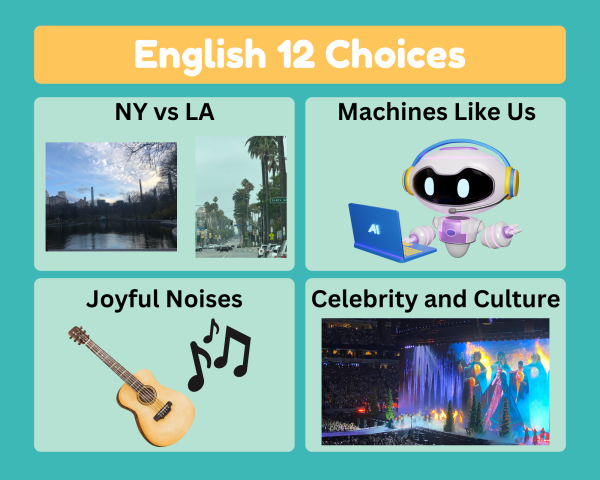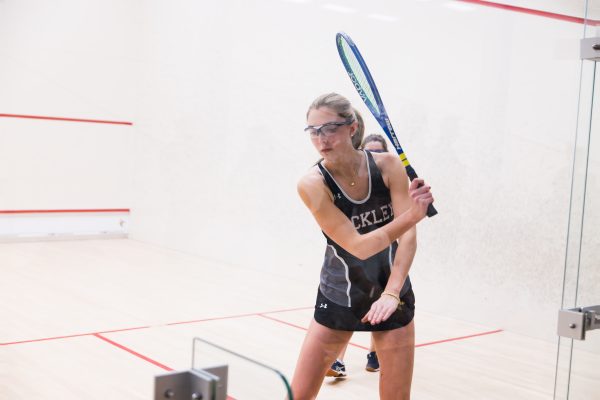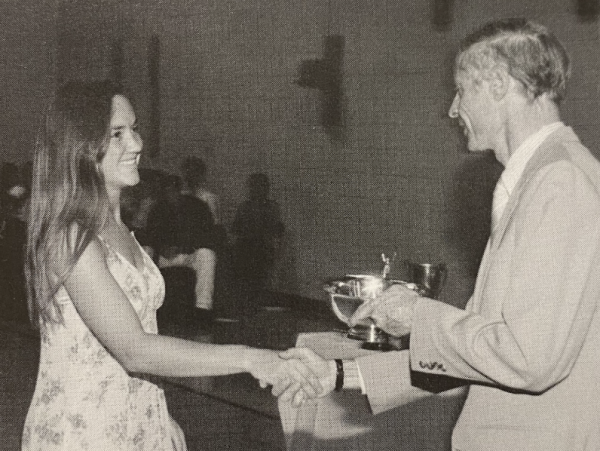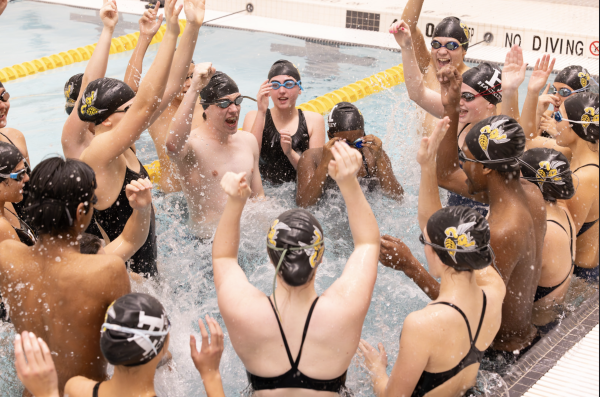Me Too Movement influences health classes
January 6, 2019
One of Hackley’s purposes as an educational institution is to adequately prepare its students for college and the challenges they will face beyond Hackley. Unfortunately, it is likely that some graduates may face sexual harassment at some point in their lives.
According to the United States Government’s Office on Women’s Health, one in every five women will experience some form of sexual assault. Furthermore, according to a study done by the US Department for Justice, eighty percent of assaults go unreported.
“It’s a super pressing issue on college campuses and that’s where we are all going,” Junior Emmy Wenstrup said. “I think a lot of the time on college campuses the consent lines can seem blurry when they are actually not and a lot of people don’t understand that.”
Freshmen Mira Zaslow echoed Emmy’s concerns. “I don’t think consent is a very complex concept,” Zaslow said. ”People just disagree when consent becomes inconvenient.”
Health teacher and coach Cassandra Sekkas is well aware of these problems. This year, she started to weave in mini-lessons about consent earlier in the year, during the communication and relationships unit.
“I’m starting to plant the seeds about consent earlier so when we get to the sexual health unit it’s not as new to the students and they are used to the idea and the terms,” Sekkas said. “The more I talk about certain things and the more it’s threaded throughout the entire school year the bigger the impact will be.”
Sekkas also introduced more consent lessons into the curriculum. Instead of one full lesson dedicated to consent, there are three.
Junior Tahrayam Toure thinks additional lessons are unnecessary at a place like Hackley. “I feel like if you’re logical you’ll understand consent,” Toure said. “Just don’t be an idiot.”
Sekkas disagrees because with these additional lessons she will be able to give more information about when a person is no longer able to consent due to their level of intoxication and how to determine that. Ms. Sekkas also wants students to leave her classroom knowing when they need to ask for consent and how to assure that consent has been given.
“We need to start teaching people to become upstanders. We need to teach people how not to assault and how not to take advantage of someone.” Ms. Sekkas said. We need to teach people how to tell when someone is too intoxicated and to encourage that person to go home, go to sleep and make sure they are safe.”
However, the health program constantly struggles with limited time. High school health at Hackley is only taught in tenth grade, twice per cycle, which significantly limits the depth and breadth of the topics covered. If Sekkas were to extend the consent lesson she would need to cut part of the lesson on drugs, eating disorders, or other important issues.
“It’s hard to make that call every year, what’s going to stay and what’s going to go.” Sekkas said, “I look to what’s going on in the world to help me decide.”
A potential solution to time limitations is the health electives Director of Health and Wellness Ms. Pabst and Ms. Sekkas may be offering in the coming years. This would provide students the opportunity to educate themselves further not only on consent but also on nutrition and other aspects of their health.
“When I think about the Me Too movement and Enough is Enough I think about it at multiple levels. How do we teach it in the classroom? How do we help our parents have conversations about it? How do we help our faculty have conversations about it? But also, what do our policies look like here? Do our students feel they can report and feel supported and safe?” Ms. Pabst said.
Adding some aspect of consent to the Lower School character development program and teaching is also being discussed.
“I think you could teach age appropriate consent K-12. You’re not teaching consent in the same way in second grade but you are getting kids to share and ask; Can I borrow something? Can I use something? And respecting a no is a really important thing at a young age,” Ms. Pabst said.
Ms. Pabst hopes to not only teach consent but to also make sure students know that at Hackley, they will be supported if they report sexual harassment and violence. She wants to ensure that students know who they can go to and what will happen if they come forward.










